In this article, I will cover the Best Video Games That Allow You to Live Your Daily Life Virtually, where mundane tasks turn into delightful experiences.
Simple activities such as farming, relationship crafting, business managing, and hobbies like decorating are cleverly incorporated into these games. These digital worlds are ideal for unwinding as they turn mundane tasks into simple, yet meaningful, cozy adventures.
Key Point & Best Games That Let You Live an Ordinary Life Digitally List
| Game | Key Points |
|---|---|
| The Sims 4 | Life simulation game; deep character customization; expansive world-building |
| Stardew Valley | Farming RPG; pixel art style; community building and exploration |
| Animal Crossing: New Horizons | Social simulation; island customization; real-time gameplay and events |
| Unpacking | Puzzle and narrative game; unpacking belongings to tell a story; relaxing gameplay |
| My Time at Portia | Open-world RPG; crafting and farming; quest-driven with charming characters |
| Dreamlight Valley | Life simulation with Disney and Pixar characters; exploration and questing |
| Littlewood | Town-building RPG; peaceful gameplay; focus on rebuilding a town after a great adventure |
| Spirittea | Visual novel with mystery; tea shop management; supernatural story elements |
| Echoes of the Plum Grove | Narrative-driven RPG; exploration and puzzle-solving; fantasy setting |
| Lemon Cake | Cozy slice-of-life game; gardening and relationship-building; relaxing atmosphere |
1.The Sims 4
The Sims 4 shines as one of the most unique games that allows you to partake in a simulated version of everyday life, as it encompasses building homes, developing relations, and managing a career among other things in a highly crafted world.

It offered a unique type of enjoyment through the myriad of human moments it allows, such as simulacra of arguments, struggles, celebrations, and to-do lists which lets users go through or sidestep the real world in a highly customizable and engaging virtual setting full of emotions.
Pros & Cons The Sims 4
Pros:
- Life simulation game which provides one of a kind detailed simulation with avatars and houses.
- Active modding community and regular expansion packs.
- Grants freedom in creativity for story and lifestyle decisions.
Cons:
- Absence of content and depth in the base game is a major shortcoming.
- Needs a powerful PC for Peak Performance.
- Less open-world exploration compared to previous versions.
2.Stardew Valley
Stardew Valley stands out as one of the finest games in which an individual can experience a simple life through the process of farming. Fishing, cultivating crops, and forming friendships all fall under the category of routine activities, and these activities lead to incremental improvement of your farm.
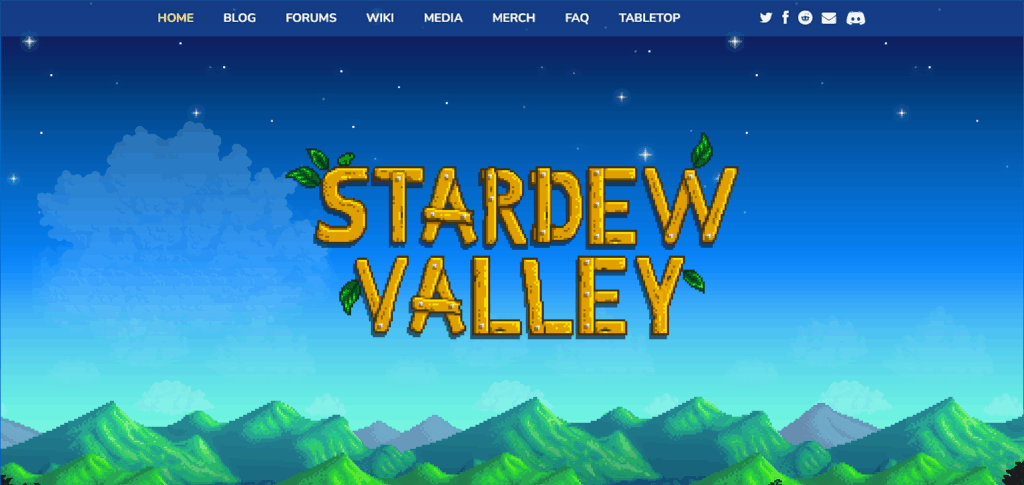
Most noteworthy is how it captures the delight of slow living coupled with community connection, allowing for stress-free diversion where progress is a result of patience, care, and thoughtful daily routines, not swift mechanics.
Pros & Cons Stardew Valley
Pros:
- Soothing gameplay and deep social and farming systems.
- Captivating pixel art and soundtrack deepen immersion.
- Ongoing updates, and added multiplayer and crossplay of late.
Cons:
- Limited interaction with NPCs.
- Slow progression rate is not for everyone.
- Some monotonous tasks.
3.Animal Crossing: New Horizons
Animal Crossing: New Horizons is surely one of the best life simulation games as it provides players with a soothing, real-time simulation of life on an island. Players partake in fishing, decorating, gardening, and interacting with their animal neighbors.

Perhaps the most unique feature of the game is the in-game clock and calendar which account for real world time, which allows for the player to experience seasons, holidays, and daily activities. This unstructured passage of time allows for players to form a bond with the game, and transforms the virtual days into comforting, habitual creative expression.
Pros & Cons Animal Crossing: New Horizons
Pros:
- Activities and events change according to the seasons in real-time.
- Strong customization and decorating tools.
- Relaxing gameplay connected with a charming and soothing aesthetic.
Cons:
- Inventory and crafting systems are basic.
- Online multiplayer is often slow and awkward to use.
- The daily routine can be monotonous.
4.Unpacking
Unpacking gives you a chance to experience a life moment that may be considered mundane in a very captivating way. Moving houses and organizing your belongings captivates you in ways that people often ignore. Unpacking tells a story without any speech and through items; life narratives are expressed in the confined and empty spaces that are available.

Every item that is placed is an expression and an unspoken narration of a character’s life and evolution. The game shines in how it changes an ordinary task like organizing things into a deeply moving tale. It tells a story that merges emotional elements with moving parts ready to be explored. It invites the players to form a bond with attempts that are often considered to be insignificant.
Pros & Cons Unpacking
Pros:
- Innovative decision-making in storytelling with arrangement of objects.
- Emotionally rich game without dialogue or text.
- Relaxing and uncluttered play without a ticking clock.
Cons:
- Brief game duration and low replay value.
- Absence of conventional objectives or linear progression.
- Some players may find it overly simplistic.
5.My Time at Portia
My Time at Portia earns its spot as one of the best games allowing one to experience the day-to-day aspects of the post-apocalyptic world of Portia. As a builder relaxing your father’s workshop, you create a diverse range of items, farm, and even build relationships within the lively town bustling with odd but friendly residents.

It’s focus is how the warm life-sim features blend with a complex crafting system, light exploration and the game’s slow but peaceful and meaningful tempo which portrays the joy of consistent self-improvement.
Pros & Cons My Time at Portia
Pros:
- Comprehensive crafting and construction systems.
- Open-world tasks include exploration.
- Active engagement in social interactions and quests.
Cons:
- Combat is uninspired and control systems are awkward.
- Outdated graphics are a turn off for some.
- Monotonous daily routines in the mid-game.
6.Dreamlight Valley
One of the games that immerse you in the charm of Disney while doing mundane tasks is Dreamlight Valley. In the game, you get to interact with Disney characters like Moana, WALL-E, and Elsa, to fish, farm, cook, and decorate.

Its stand-out feature is the blend of fantasy and life-sim elements with woven together storytelling which helps players escape to a world where they can savor the nostalgia of performing simple chores with the thrill of animated characters in a fully tailored universe.
Pros & Cons Dreamlight Valley
Pros:
- Life-sim features with Disney characters.
- Regularly scheduled content updates and events.
- Deep customization options and a cozy atmosphere.
Cons:
- Lack of premium content may hinder progress.
- Always online.
- Some evolving content gaps.
7.Littlewood
Littlewood is one of the best games that allow you to immerse yourself in the mundane aspects of life after a grand journey is concluded. Instead of fighting, it offers farming, relationship-building, and even town construction in a peaceful, fantastical setting.
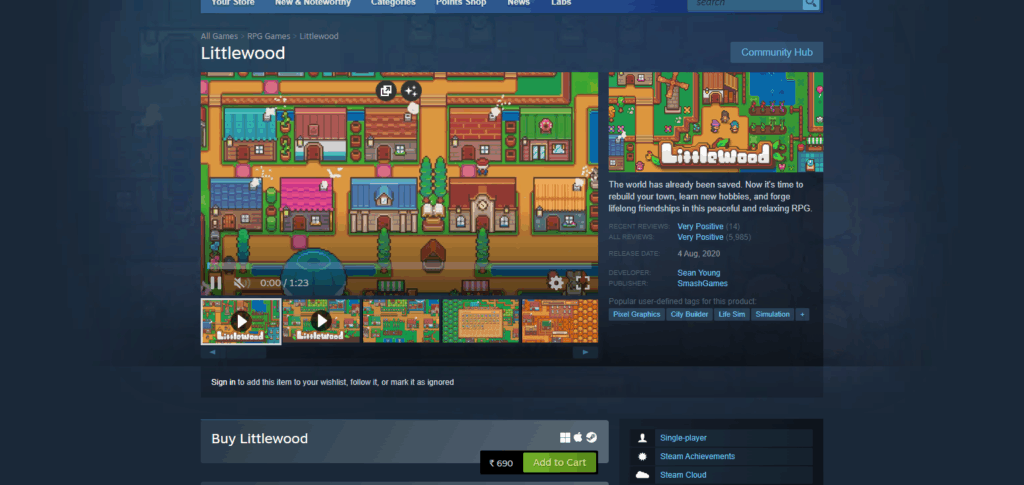
It’s the way the game’s refreshing charm revolves around healing and recuperation that stands out, welcoming players to settle into a soothing daily rhythm of crafting, exploring, and connecting with villagers—transforming routine into a soothing rhythm in a world that celebrates serenity instead of strife.
Pros & Cons Littlewood
Pros:
- Calm town-building sequel to a hero’s journey.
- Relaxing pace and intuitive mechanics.
- Cheerful characters and rich colors.
Cons:
- Limited narrative elements.
- Absence of combat may disappoint some players.
- Less content expands the game’s lifespan.
8.Spirittea
Spirittea is one of the top games where you can experience the mundane digitally as it immerses you in the role of a tea house caretaker in a town filled with spirits. Its combination of slice-of-life genres with the supernatural lets you brew tea, bath-clean, and assist spirits in moving on.
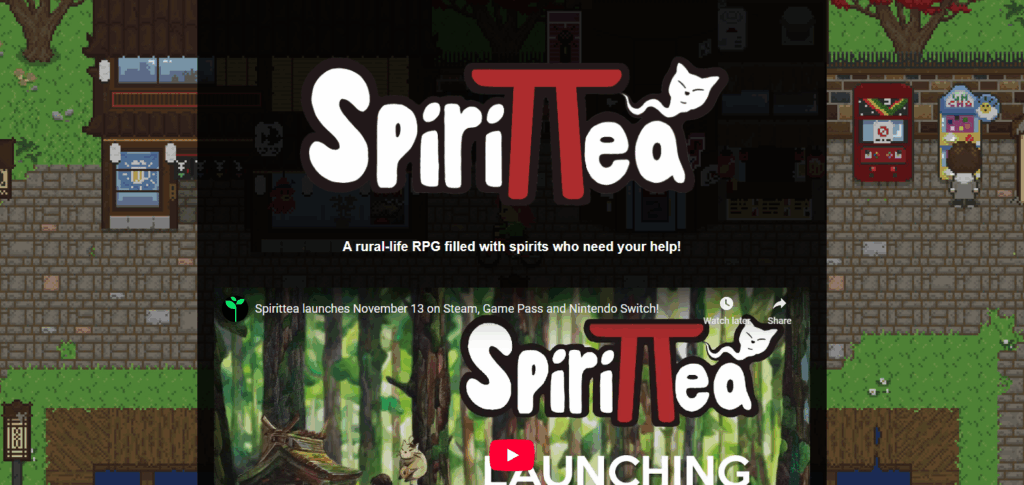
The mundane is transformed through the soft lens of the supernatural which turns, mundane tasks into the deeply tranquil and the everyday into the tender care of a magical realm brimming with spirits.
Pros & Cons Spirittea
Pros:
- Life sim blending with themes of a spiritual caregiver.
- Mystical and rich cultural settings.
- Bathhouse and spirit management offer a unique combination.
Cons:
- Launch technical bugs.
- Not all players may find niche gameplay engaging.
- Sparse guidance may be perplexing for beginners.
9.Echoes of the Plum Grove
Echoes of the Plum Grove invites you to savor the simplicity of life in a farming community by honing on intergenerational storytelling. Players can partake in a variety of activities like farming, animal husbandry, cooking, and even building social connections.
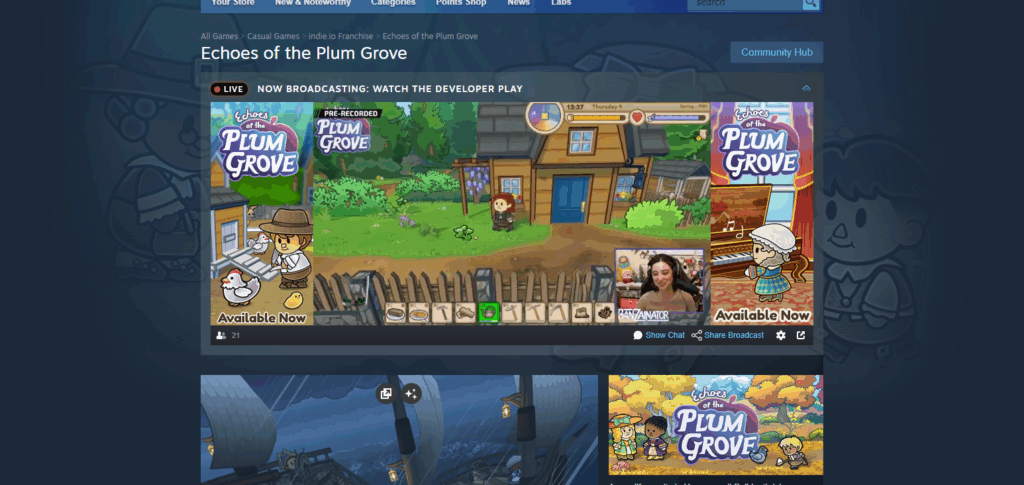
However, the game’s most impressive trait is its legacy system—your choices impact future generations. The emotional connection you develop to even the most mundane tasks is amplified dramatically by the need to not only farm, but nurture a family story spanning many decades.
Pros & Cons Echoes of the Plum Grove
Pros:
- Generational legacy systems develop depth over time.
- Dynamic seasonal gameplay offers a cozy rural life.
- The focus on family and farming.
Cons:
- The early game has slow pacing.
- There is a smaller development team, which causes slow updates.
- There is restricted global recognition or exposure.
10.Lemon Cake
Lemon Cake represents one of the best examples of games achieving life simulation through the management of bakeries which has been elevated to a captivating daily routine. Players cultivate the necessary ingredients, prepare various baked goods, and attend to customers within their small café which is set in a lovely pastel hue.
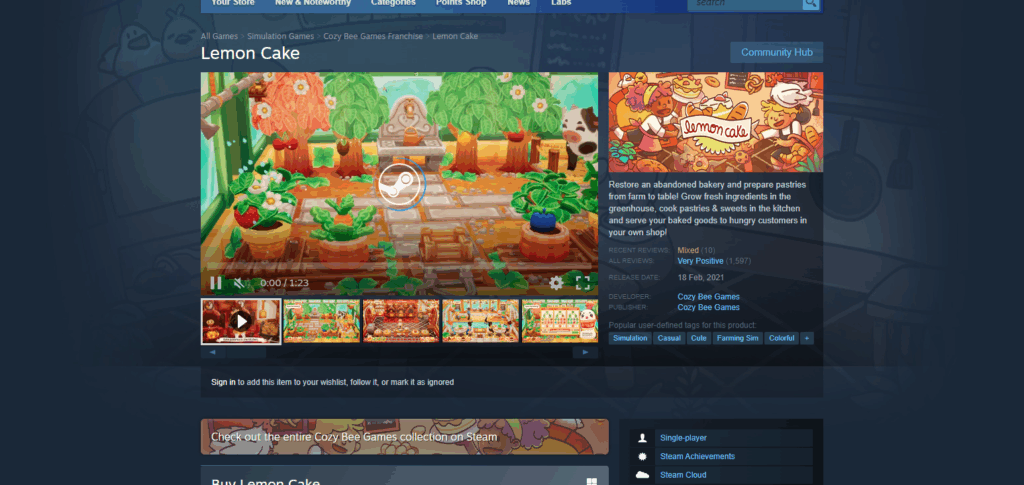
The seamless integration of patio to oven gameplay and the fact that every single step, including harvesting and baking, is done through hands-on methods makes the game remarkable. This cozy, self-sufficient system depicts the small business satisfaction that stem from nurturing, imagination, and sweet, uncomplicated tasks.
Pros & Cons Lemon Cake
Pros:
- Tasks involving baking and gardening blend delightfully.
- Calm, gentle loops of play make the game easy to learn.
- The atmosphere is positive and wholesome.
Cons:
- Mechanics become repetitive after a while.
- Limited depth leads to a brief gameplay time.
- Sparse or unbranching narrative progression.
Conclusion
To sum up, the games that provide an opportunity to live a life virtually, such as farming games, multiplayer role-playing games, or simulation games, give a person a chance to engage in farming, exploring the virtual town, or running a virtual bakery, which in reality, they wouldn’t be doing in real life.
Their design imparts a level of enjoyment to daily activities that agitated players. These forms of entertainment, such as farming games, not only assist in to provide a person a desired level of amusement, but also strengthen social and emotional bonds in life of an individual, thus, bolstering self-motivation.
FAQ
What defines a game that lets you live an ordinary life digitally?
These games simulate everyday activities such as farming, cooking, socializing, decorating, or managing routines. They often focus on relaxation, creativity, and emotional connection rather than combat or high-stakes challenges.
Are these games suitable for casual players?
Yes, most of these games are designed with accessibility and low-pressure gameplay in mind, making them perfect for casual players or those seeking a calming experience.
Do these games have objectives or are they open-ended?
Many offer optional goals, but they typically encourage open-ended play, allowing you to progress at your own pace and define your own success.









